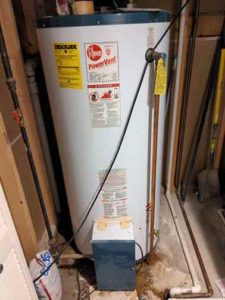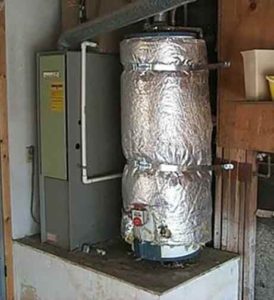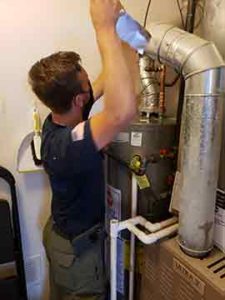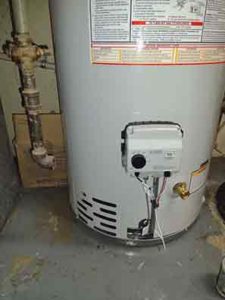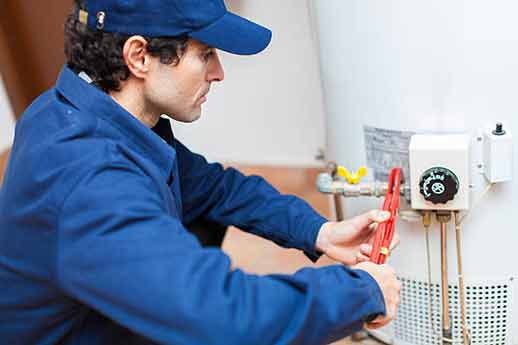
Installing a water heater tank is a common requirement for many households. The cost of installation varies from one location to another, and Chicago is not an exception. The location, size of the tank, and labor cost are some of the factors that can influence the installation cost. In this article, we will look at some of the factors that affect the cost of installing a water heater in Chicago and how much you can expect to pay.
Factors That Affect the Cost of Installing a Water Heater Tank
The Type and Size of the Water Heater Tank
The type and size of a water heater tank can significantly impact the installation cost. There are different types of water heater tanks that you can choose from, such as gas, electric, and tankless. Gas water heaters are cheaper to run but more expensive to install. On the other hand, electric water heaters are more expensive to run but cheaper to install. Tankless water heaters are more energy-efficient, but they are the most expensive type to install.
The size of the water heater tank also affects the installation cost. Larger tanks are more expensive to install compared to smaller tanks. The size of the water heater tank you choose will depend on your household’s size and hot water demand.
The Location of the Installation
The location of the installation also affects the cost of installing a water heater tank. If the installation is in an accessible area, it will be easier and less expensive to install. However, if the installation is in a hard-to-reach or confined space, it may require special tools and more labor, which will increase the installation cost.
The Labor Cost
The labor cost is another factor that affects the installation cost of a water heater tank. The cost of labor varies from one professional plumber to another. Some local plumbers offer a flat rate, while others charge an hourly rate. The hourly rate is typically higher than the flat rate. The labor cost will depend on the complexity of the installation and the amount of time the plumber spends on the installation.
The Cost of Installing a Water Heater Tank in Chicago
The cost of installing a water heater tank in Chicago will depend on the factors we have discussed above. On average, the cost of a water heater installation in Chicago ranges from $800 to $2000. This cost includes the cost of the water heater tank and the installation cost.
The size and type of the water heater tank you choose will significantly impact the installation cost. For instance, a 40-gallon electric water heater tank can cost between $500 to $700, while a gas water heater tank of the same size can cost between $1000 to $1200.
The labor cost will also vary depending on the complexity of the installation. The cost of labor alone for a water heater tank installation in Chicago ranges from $300 to $800.
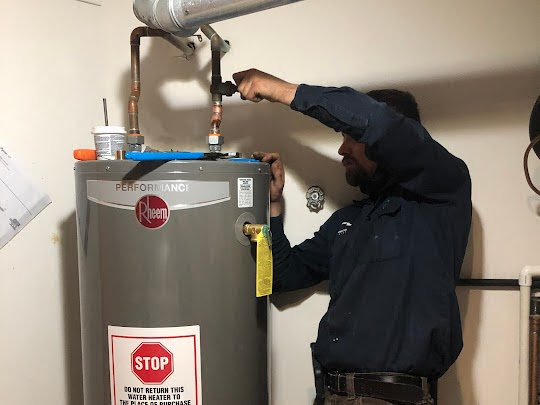
Choosing the right size and type of water heater tank can significantly impact the installation cost.
Tips to Reduce the Cost of Installing a Water Heater Tank in Chicago
There are several ways to reduce the cost of installing a water heater tank in Chicago. Below are some tips:
Choose the Right Size and Type of Water Heater Tank
Choosing the right size and type of water heater tank can significantly impact the installation cost. It is essential to consider your household’s hot water demand and the type of energy source available in your area before choosing a water heater tank. For instance, if you have natural gas available in your area, it may be cheaper to install a gas water heater tank than an electric water heater tank.
Shop Around
Before hiring a professional plumber to install your water heater tank, it is essential to shop around and compare prices. You can get multiple quotes from different plumbers and compare them to find the best price. However, it is also essential to consider the plumber’s experience and qualifications.
Maintain Your Water Heater Tank
Maintaining your water heater tank can help reduce the cost of installation. Regular maintenance can help extend the life of your water heater tank and reduce the likelihood of breakdowns. Some maintenance tasks you can do include flushing the tank annually and checking the temperature and pressure relief valve.
Consider Financing Options
If you cannot afford to pay for the installation upfront, it may be possible to finance the installation cost. Many water heater manufacturers offer financing options that can help spread the cost of installation over a period of time. However, it is essential to read the terms and conditions carefully and ensure that you can afford the payments.
To Sum It Up
The cost of installing a water heater tank in Chicago can vary significantly depending on several factors, including the size and type of the water heater tank, the location of the installation, and the labor cost. On average, the cost of installation ranges from $800 to $2000. However, you can reduce the cost of installation by choosing the right size and type of the water heater tank, shopping around, maintaining your water heater tank, and considering financing options. It is essential to hire a qualified and experienced professional plumber to install your water heater tank to ensure that it is installed correctly and safely.
—


